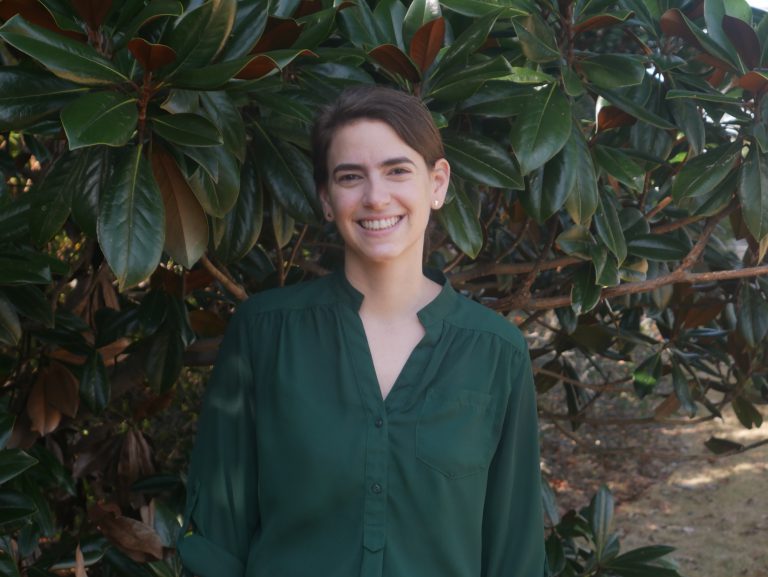COSAM News Articles 2024 03 Auburn biology education leads NSF grant to determine what makes an effective scientific role model
Auburn biology education leads NSF grant to determine what makes an effective scientific role model
Scientific role models increase student success in their science courses as well as inspire students to pursue science careers. The Ballen Lab at Auburn University has completed significant research demonstrating that role models with diverse identities are lacking in undergraduate biology classrooms. Students with identities that are not represented in their undergraduate science courses do not have many opportunities to see themselves in science careers and as scientific leaders.
“I am excited to collaborate with researchers at Michigan State University to identify factors that improve equity and success in undergraduate STEM education. Our research will investigate how and why role models are critically important for students,” said Cissy Ballen, associate professor in the Department of Biological Sciences.
The team, led by Ballen, was awarded $1.5 million from the National Science Foundation’s Division of Undergraduate Education. Auburn's portion of the grant, which begins April 1, is $942,952.
Robin Costello, a postdoctoral scientist in the Ballen Lab working to understand the relationship between role models and successful student outcomes, explained, “Featuring relatable scientist role models in classroom materials is a low-cost and accessible way to increase the recruitment and persistence of students with identities historically and currently excluded from STEM.”
The research team’s recent research showed a direct correlation between relating to scientific role models and student engagement. “These results led to more questions about the critical features of scientist role models that make them effective and served as the foundation for the recently awarded project,” Ballen explained. “Theory makes several predictions about why and how role models are critical to student success. With this support from NSF, we will conduct critical research that tests theory on what makes an effective role model.”
Costello added, “Our research will specifically explore how to tell scientists role model stories in ways that improve student outcomes.” The project is entitled “Collaborative Research: Sharing Scientist Role Model Stories to Improve Equity and Success in Undergraduate STEM Education.”
“Several popular resources have been created to combat the pervasiveness of the stereotypical scientist in biology and STEM curricular materials,” Ballen added. An important long-term result of the project are free, open-source materials for educators to use in their classrooms to nurture more inclusive environments where students can learn from a wide array of STEM leaders to whom they can relate.
These resources will develop biology data literacy curricular materials that teach quantitative skills while simultaneously highlighting the diversity of scientists in STEM. These resources will be based on two well-known educational resources: Data Nuggets, resources that are developed in a partnership between scientists and teachers, and Project Biodiversify, a site that offers education tools for diversity and inclusion in biology classrooms.
Ballen and Costello will be recruiting instructors to implement the activities in classrooms. If you are interested in participating in this project, please contact mjb0100@auburn.edu.
Latest Headlines
-
07/09/2024
-
Summer Bridge Program celebrates 21 incoming Auburn students as they prepare for future STEM careers07/02/2024
-
07/02/2024
-
06/17/2024
-
06/07/2024


